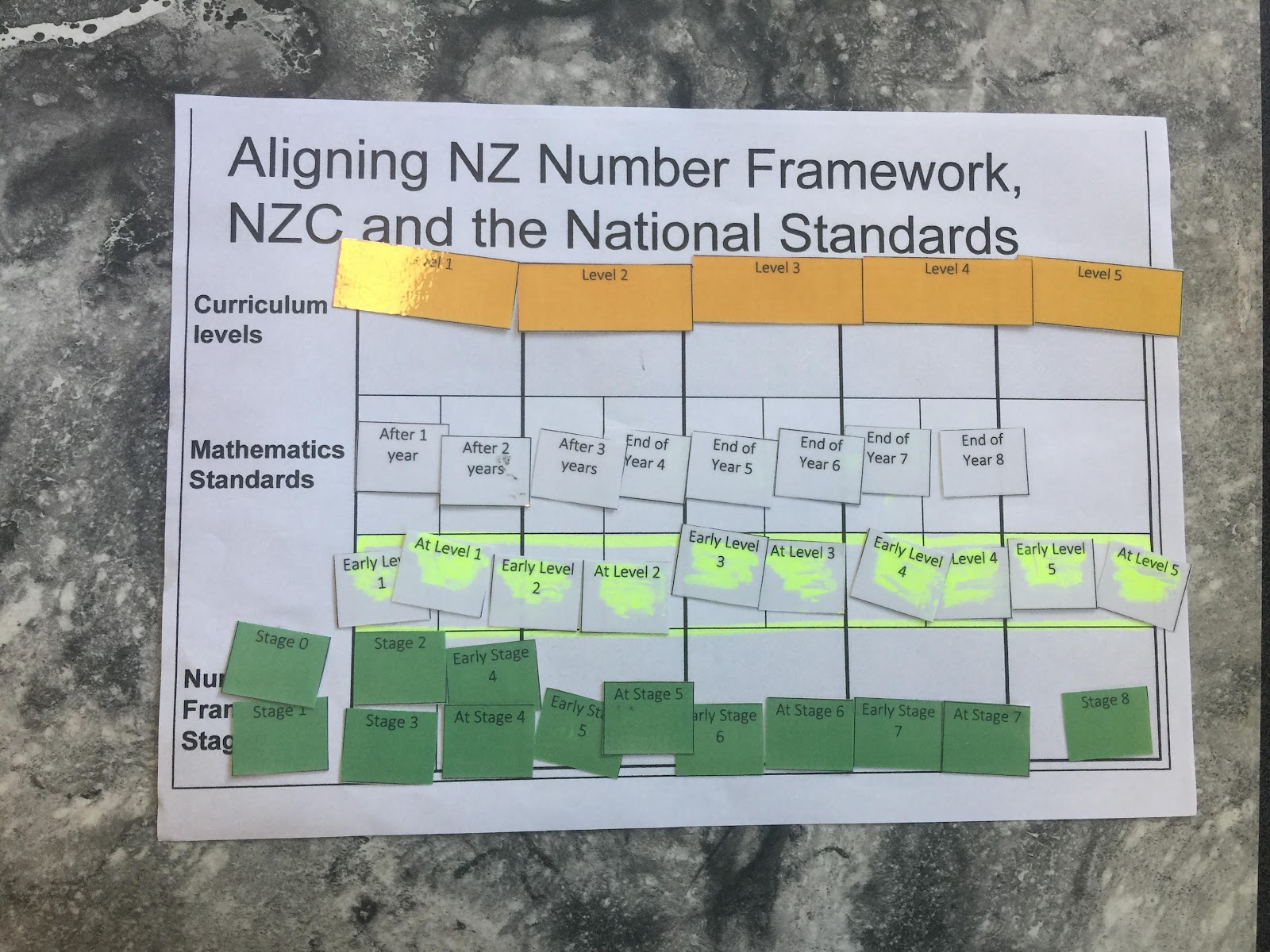Maths PD With Jo Knox
Today's PD was about aligning the NZ Number Framework, NZC and the National Standards. I have made some notes around things I found helpful or interesting, especially around the tests we use with our children. This is my first year teaching year 3 and the tips around Gloss I found very interesting and helpful. Thanks Jo Knox!!

Some important notes/ things to remember :
Because one curriculum Level spans 2 years - we look at early level and end of level. So in year 3 they need to be early level 5 - at the end of stage 5 by the end of year 4.
Knowledge and strategies are interwoven or interlined
We need to think about what tool is most appropriate - Jam or Gloss?
Assessment isn’t just a one-off thing … it can be a chat you have with students.
Summative - tape measure - MEASURING - gives you a mark/score. SUMMARISES what the child knows.
Formative - what can I do differently to affect the growth of that flower (student in our case) - informs what learning needs to happen.
Important things for gloss: Designed as a mental strategies paper … if using paper to work out problem they just need more practice to be FLUID….
You can reword the problem to change the context if it is not relevant to the learners - but change the integrity of the question.
Exploring Number Knowledge:
I-KAN - benefits - it is quick - downside is that it’s hard, pressure, the questions come at you too fast, children have to answer the questions they sometimes do not know where to write the answers etc. Might only be suitable for a group of students in your class. Just think about how you might change it … make it relevant/ work for your kids.
SPIDER GRAPH - Helps the children to see clearly in a visual format, what their strengths were and what areas they need help with/ to focus on. You highlighter on the 'web' where they need to be with a highlighter and with another coloured highlighter you show where they are- this gives YOU as the teacher as well as the learner a good idea of where they are at.


Great way to make your own learning rewindable Mia. I wonder if you thought about how her comments on assessment also apply to the data gathering phase of your own Inquiry? ie student voice, anecdotal evidence from conversations etc applies another lens to the data you gather about your learners.
ReplyDeleteThis comment has been removed by the author.
DeleteThank you for your comment Dorothy. I have found having my teacher notes/reflections open on my laptop whilst working with my reading, writing and maths groups allows and reminds me to note down anything the children say or do that that may reflect understanding and success in learning outcomes or perhaps the opposite. I use these reflections and 'formative' assessment/ reflection notes when I am planning next learning steps, writing reports and even making OTJS.
Delete